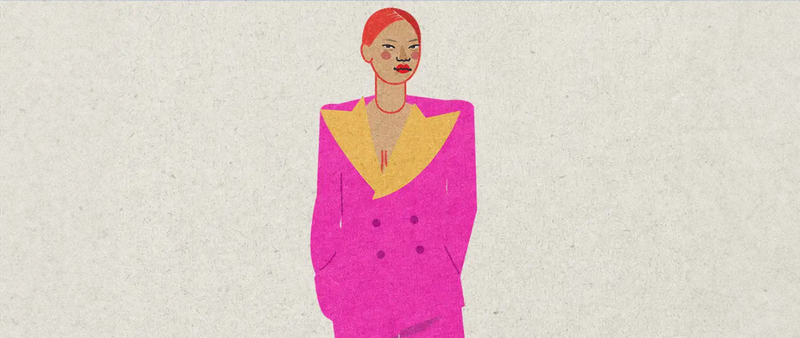If you are not an English mother tongue your first encounter with the word yo almost certainly happened via music or other iconic moments in pop culture, for example, the famous scene from Rocky, where the protagonist, while being filmed by the cameras, screams: "yo Adrian, I did it!"
But, first and foremost, the word yo was made famous by hip-hop subculture, especially between the 80s and the 90s, becoming quite common in the United States and then in the rest of the world.
Those who are no longer so young will probably remember an old show entitled “Yo! MTV rap", which reached a certain popularity from 1987 to mid-90s.
Indeed, one has to admit that the word yo is somewhat catchy. Its meaning is easy to grasp and it has all it takes to go viral. In a 1993 article in the New Yorker, Michael T. Kaufman described this cheering expression as following:
And in this city [New York], where in one way or another everyone comes from Away, it is clearly the salutation of choice, a pithy, cheery and direct expression of common citizenship, something like "ave" must have been for the ancient Romans, only much more democratic.
But, what exactly does this word mean? As our beloved Ludwig states, it is an interjection, a word or phrase with no particular grammatical relation to a sentence, often used to express an emotion. Therefore, the word yo is not too dissimilar from yikes, which was declared the most famous word of 2019. Specifically, as an interjection, yo is used to send your regards to someone (in a quite informal way), to indicate attentiveness, or to express affirmation. If we take a look at Ludwig we can find several useful examples to better understand the contexts in which the word is actually used:
Yo, voiceover guy, I'm really happy for you and I'ma let you finish
Yo, have you ever worked in an office before?
And I say, 'Hey, yo, where are you guys going?
It is therefore clear that yo can be considered a synonym of “Hey” or "Hello". In other words, it is a a greeting.

Yo and its mysterious origin
Unexpectedly, the word yo seems to be more ancient than one might guess. According to some scholars, its first attestations could already be identified at the beginning of the 15th century (when it was also written as io) and was mainly used among huntsmen and sailors.
Another theory, instead, sustains that its origins should be more recent and could be traced back to the communities of italians who arrived in North America in the first half of the 20th century. Specifically, this interjection should be considered as a shortened form of the word “guaglione” which means “guy”, “young man”. The term is typical of Southern Italian dialects, especially those spoken in Napoli and its surroundings, where it is still in use today. Moreover, even in Italy, it is not uncommon for the word "guaglione" to be shortened to “vaglio’”, which is to be pronounced whal-YO, hence the interjection under analysis here.

When Michael T. Kaufman, in the aforementioned article from the New Yorker, described yo as a typical greeting of New York, soon, a real backlash arose in response, especially from Philadelphia. Several Italian-Americans from this city wrote a number of letters to explain how this expression originated among the local community of Southern-Italian immigrants. In particular, a man called Ernest Paolino wrote as follows:
In the 1930's a large proportion of the residents of South Philadelphia were Italian immigrants, mostly from the Campania region of southern Italy, the principal city of which is Naples.
Even etymonline states that the modern popularity of yo dates from World War II, when it was used as a common response at roll calls, and seems to be strongly rooted in the area of Philadelphia. Not by chance, the movie Rocky was actually set in this city...
Also, it has been hypothesised that the expression, during the interwar period, was soon assimilated by the Black communities living in Philadelphia, where Southern-italians and Afro-Americans seemed to have coexisted almost peacefully, in neighbourhoods where both Italian and Black children used to play together. Some local newspapers even reported that, at the time, young black people started to learn some expressions typical of Italian dialects. So, it is reasonable to posit that it was in this context that the word yo started to be used among young Afro-Americans and, then, spread all over the world thanks to hip hop music.

Are these two theories really mutually exclusive?
In sum, the origins of the word yo are somewhat controversial. On the one hand, it seems that the term is very ancient and, indeed, it can be already identified in 15th century written sources. On the other hand, several data seem to suggest that the word originated among Italian-American immigrants and it soon gained popularity thanks to their interactions with the Afro-American community in Philadelphia.
Yet, if we take into consideration that the most ancient attestations of the interjection io/yo mainly occurs in theatrical pieces, often aiming at mimicking the slang of sailors, one could reasonably posit that these two theories are not necessarily mutually exclusive.
To be honest, I have not been able to find proper documentation to demonstrate this theory. Yet, we have already seen in another post published on Blogwig how the Ancient Mediterranean Lingua Franca — an idiom mainly spoken by sailors, travellers, and wandering groups of actors — played a certain role in shaping modern English.
This mysterious idiom, strictly rooted on ancient Italians dialects, is the ancestor of Polari, the slang currently still in use among drag-queens, and the use of Polari words can be even identified in some passages from Shakespeare. So I wouldn't rule out a priori that the word yo/io has been created more than once throughout history: it always arose in multicultural contexts where diverse social groups had to interact and communicate with each other. From this point of view, perhaps, Michael T. Kaufman was right: yo is one of the most democratic, but also intersectionalist, greetings of the world!
I wish you all the best!






